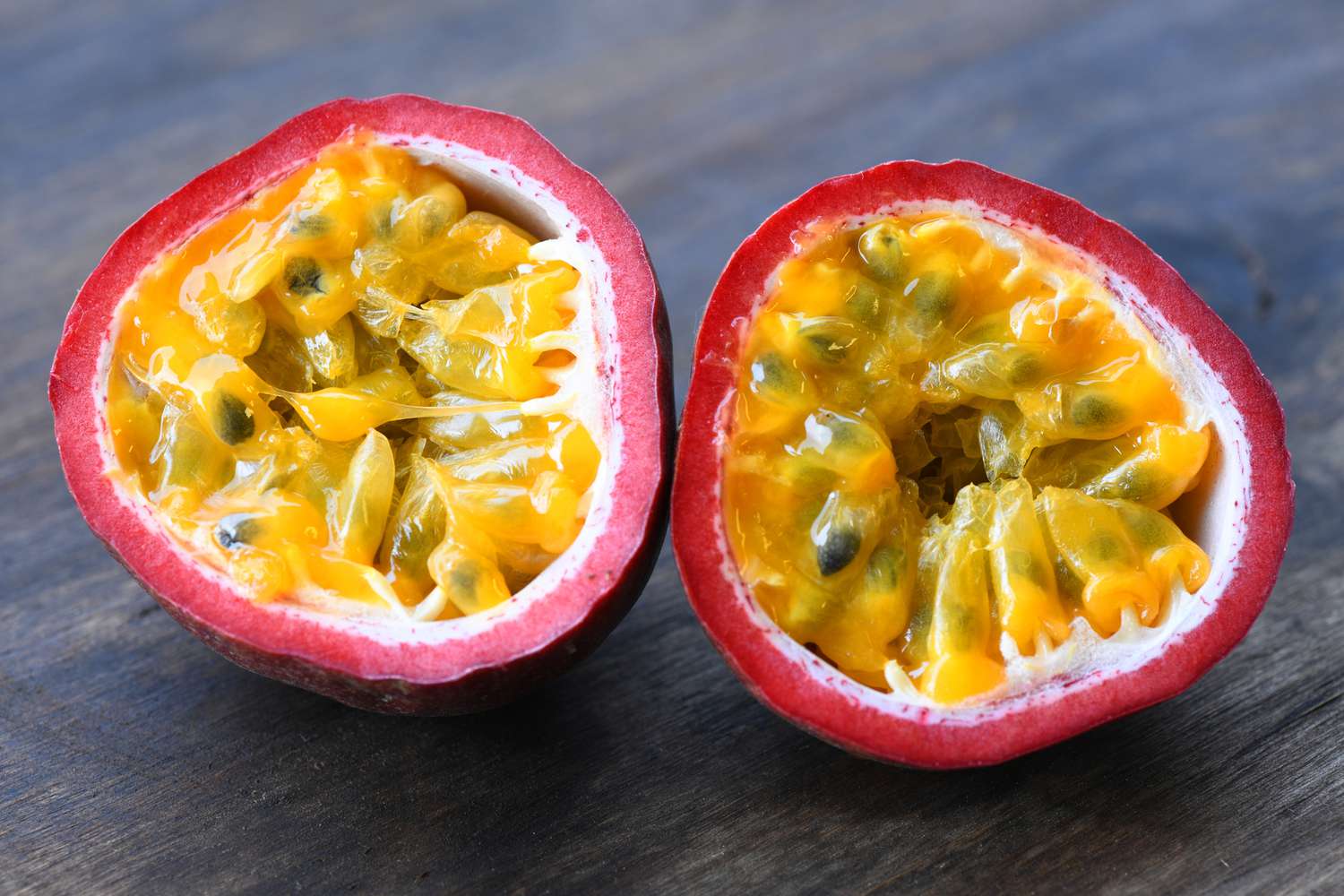
29 interesting facts about Passion fruit
- 👁️ 269
Passion fruit, with its intriguing name and exotic appearance, stands out as one of the most flavorful and nutrient-rich fruits known to us. Originating from South America, this tropical fruit has traveled the world, gracing cuisines and diets with its distinctive taste and health benefits. Passion fruit is not only a delight to the taste buds but also a powerhouse of vitamins, minerals, and antioxidants, making it a favorite among health enthusiasts and culinary experts alike. Its unique combination of sweet and tart flavors makes it versatile in various dishes, from desserts to savory sauces. Here are 29 interesting and informative facts about passion fruit that showcase its uniqueness and importance.
- The name “passion fruit” was given by Spanish Catholic missionaries in the 16th century, who believed parts of the plant symbolized the Passion of Christ.
- There are over 500 species of passion fruit, but the most commonly consumed types are Passiflora edulis (purple passion fruit) and Passiflora flavicarpa (yellow passion fruit).
- Passion fruit is rich in vitamins A and C, which are essential for vision, skin health, and immune function.
- The fruit contains a high level of dietary fiber, beneficial for digestive health.
- Passion fruit seeds are edible and provide a good source of fiber and essential fatty acids.
- It has a low glycemic index (GI), making it a suitable fruit choice for people with diabetes.
- The fruit is also a good source of antioxidants, particularly vitamin C and beta-carotene, which help combat free radicals in the body.
- Passion fruit’s sedative properties, attributed to the alkaloids and phytonutrients it contains, can help improve sleep quality.
- The purple passion fruit is native to Brazil, Paraguay, and northern Argentina, while the yellow variety is believed to have originated in the Amazon rainforest.
- The flower of the passion fruit vine is the national flower of Paraguay.
- Passion fruit can be eaten fresh or used in preparing juices, desserts, salads, and even savory dishes.
- The fruit’s pulp contains a high amount of pectin, making it an excellent ingredient for jams and jellies.
- The juice of passion fruit is a popular ingredient in cocktails and other beverages due to its exotic flavor.
- The skin of the passion fruit is not edible and can be quite tough, especially as the fruit matures.
- Passion fruit vines can grow up to 20 feet per year and start bearing fruit within 1 to 3 years of planting.
- Each vine can produce hundreds of fruits each season.
- The fruit is rich in potassium, which is crucial for heart health and maintaining optimal blood pressure levels.
- Despite its sweet taste, passion fruit is low in calories, making it an excellent addition to weight-loss diets.
- The leaves of the passion fruit vine are used in traditional medicine to treat a variety of ailments.
- Brazil is one of the largest producers of passion fruit.
- The unique flavor of passion fruit is described as a mix of citrus, guava, and pineapple.
- The jelly-like pulp inside the fruit is filled with black seeds that are surrounded by the aromatic, flavorful juice.
- Passion fruit has a protective outer rind that allows it to withstand transport over long distances.
- When selecting passion fruit, wrinkled skin is an indicator of ripeness and sweetness.
- The fruit is a natural source of serotonin, a neurotransmitter that helps regulate mood.
- In addition to raw consumption, passion fruit extract is used in beauty products for its skin benefits.
- The vines of passion fruit are prone to diseases and pests, which can affect yield and fruit quality.
- Passion fruit oil, extracted from the seeds, is used in cosmetics for its anti-inflammatory and moisturizing properties.
- In traditional South American cultures, passion fruit was used to make a calming tea.
Passion fruit is not only a delicious and exotic addition to the fruit world but also a nutritional powerhouse that supports health in various ways. From its unique history and naming to its widespread use in culinary and medicinal applications, passion fruit continues to fascinate and benefit people around the globe. Its rich nutrient profile and versatile flavor make it a valuable ingredient in diets and cuisines worldwide. As research into its health benefits continues, passion fruit stands out as a fruit truly worthy of passion.
Passion fruit, with its intriguing name and exotic appearance, stands out as one of the most flavorful and nutrient-rich fruits known to us. Originating from South America, this tropical fruit has traveled the world, gracing cuisines and diets with its distinctive taste and health benefits. Passion fruit is not only…